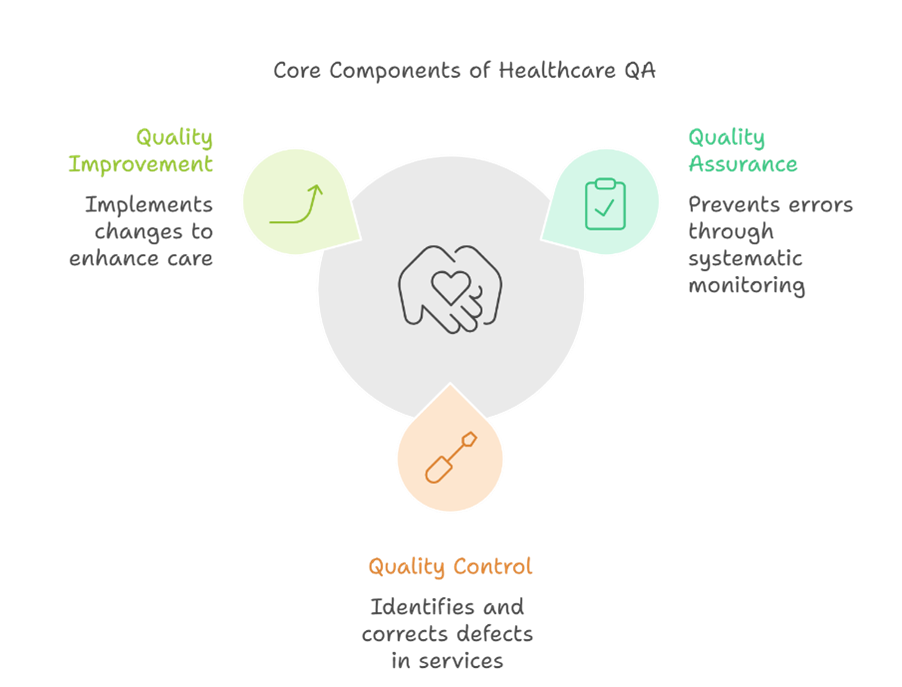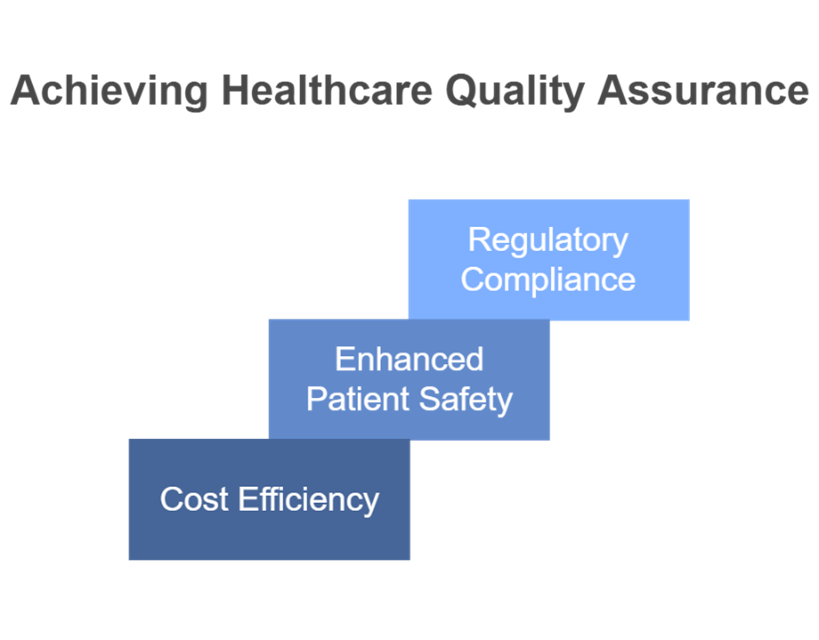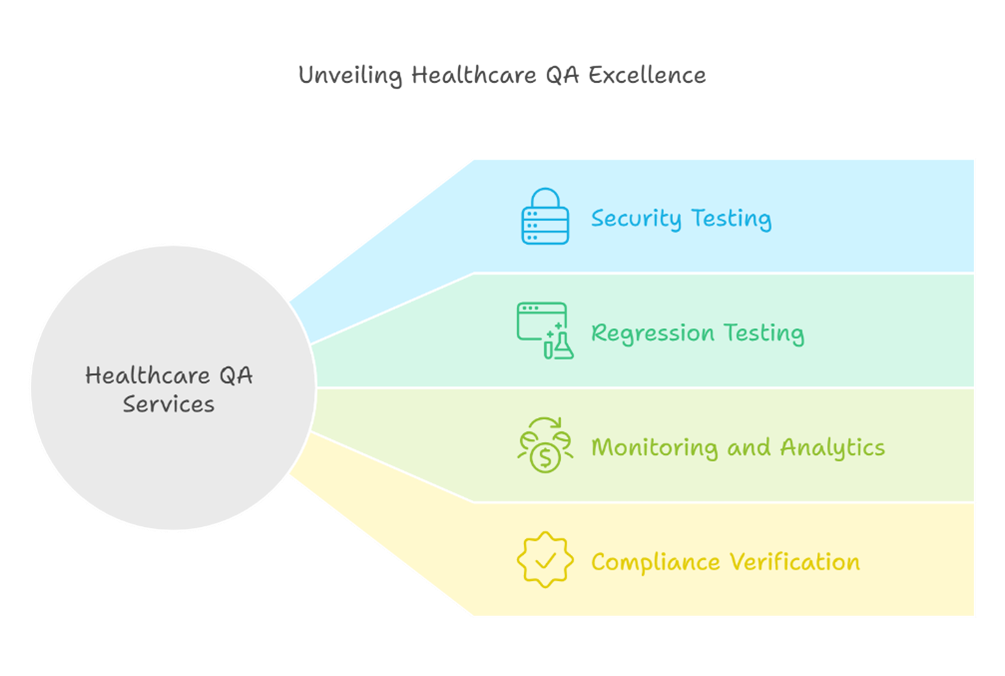The healthcare industry’s digital transformation has made Quality Assurance (QA) more critical than ever. With medical errors causing hundreds of thousands of deaths annually, implementing robust QA processes has become essential for healthcare organizations.
Core Components of Healthcare QA

Healthcare QA encompasses three interconnected elements:
Quality Assurance (QA): Focuses on preventing errors through systematic monitoring and evaluation of healthcare practices.
Quality Control (QC): Identifies and corrects defects in final products or services, such as verifying the accuracy of patient information.
Quality Improvement (QI): Implements systematic changes to enhance patient care delivery and outcomes.
Benefits of QA Implementation in Healthcare

Healthcare organizations implementing QA processes see significant advantages:
Cost Efficiency: Healthcare organizations see a significant return on investment in quality improvement initiatives, with cost savings typically tripling the initial investment.
Enhanced Patient Safety: Systematic monitoring and evaluation help minimize medical errors and improve patient outcomes
Regulatory Compliance: QA processes ensure adherence to HIPAA, GDPR, and other healthcare regulations.
Case Studies: QA Success Stories
Case Study 1: Major Hospital Network
- Context: 500-bed hospital struggling with medication errors
- Problem: 15% error rate in medication administration
- Solution: Implemented automated QA testing for medication tracking system
- Results: Reduced medication errors by 85% within six months
Case Study 2: Healthcare Software Provider
- Context: EHR system provider facing user complaints
- Problem: Poor system performance and frequent downtime
- Solution: Integrated continuous QA monitoring and testing
- Results: 99.9% system uptime and 40% reduction in user complaints
Case Study 3: Regional Clinic Chain
- Context: Multi-location clinic network
- Problem: Inconsistent patient data across locations
- Solution: Implemented centralized QA processes for data management
- Results: Achieved 100% data consistency and reduced processing time by 60%
Essential QA Testing Types in Healthcare

Security Testing: Ensures protection of sensitive patient data through encryption and access controls
Performance Testing: Validates system stability under high user loads and data volumesCompliance Testing: Confirms adherence to healthcare regulations and standards
ideyaLabs: Your Partner in Healthcare QA

At ideyaLabs, we understand the unique challenges of healthcare QA. Our comprehensive testing approach ensures:
- Rigorous security testing for patient data protection
- Automated regression testing for consistent performance
- Real-time monitoring and analytics for proactive issue resolution
- Complete regulatory compliance verification
Future of QA in Healthcare
The global healthcare quality management market is expected to reach $14.5 billion by 2028, showing substantial growth driven by increasing demand for rigorous testing protocols and patient safety measures.
This growth emphasizes the critical role of QA in ensuring patient safety and care quality.